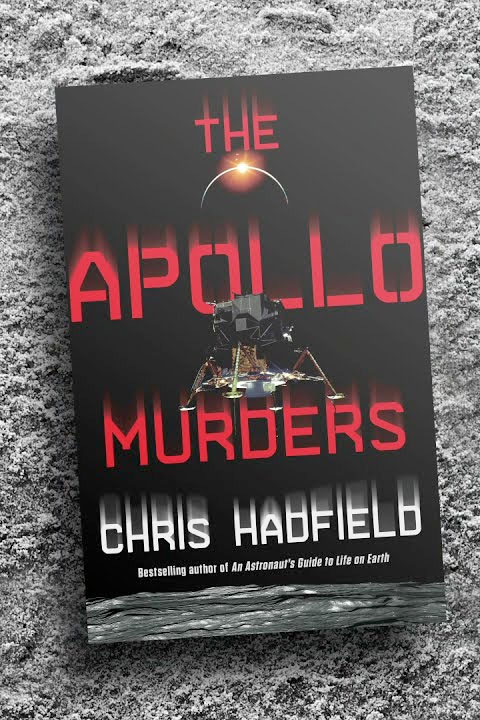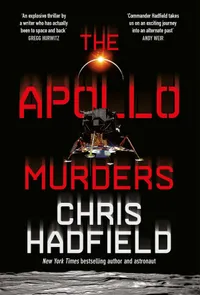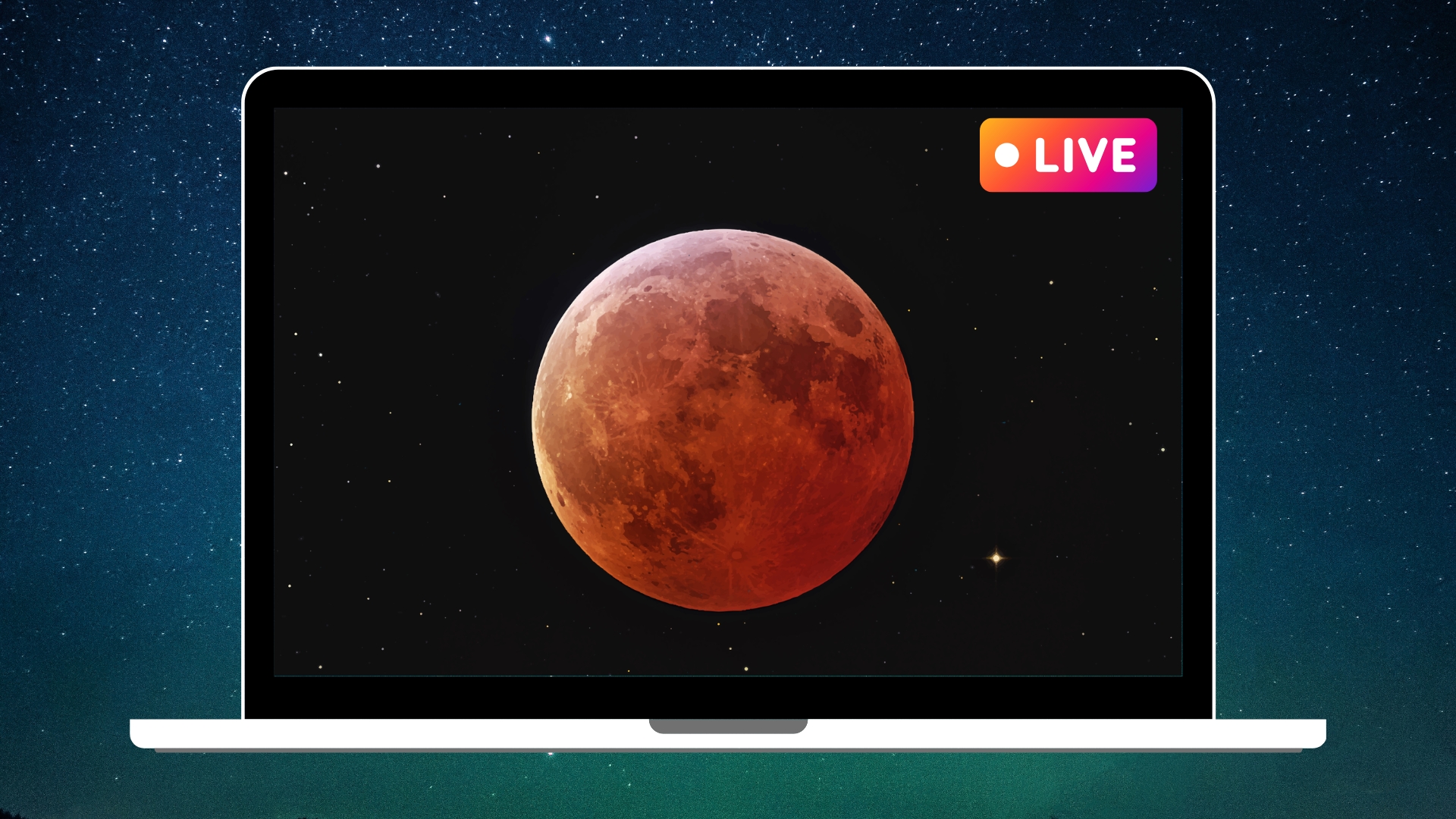Astronaut Chris Hadfield found space for 'The Apollo Murders' in real history
"I think people will be shocked how much of this book is real," says Hadfield.

Breaking space news, the latest updates on rocket launches, skywatching events and more!
You are now subscribed
Your newsletter sign-up was successful
Want to add more newsletters?
Many writers have looked back at the events surrounding the first moon landings and found opportunities to explore "what if?"
What if the Soviet Union had landed a cosmonaut first? What if President John F. Kennedy had never been assassinated, would humans still have made it to the moon in the 1960s? What if astronauts Neil Armstrong and Buzz Aldrin had really been launched to the moon on a clandestine mission to investigate the crash site of an alien spacecraft?
For Chris Hadfield, though, when he looked back, he saw the makings for a nail-biting Cold War thriller set within the real events of 1973. "The Apollo Murders," Hadfield's first novel, is now out from Mulholland Books.
"I think people will be shocked how much of this book is real," said Hadfield in an interview with collectSPACE.com.
Book excerpt: Read a chapter sample from Chris Hadfield's "The Apollo Murders"
That might be an odd thing to say about a story that includes a top secret mission, a clash that extends all the way to the surface of the moon and, as the title of the book implies, not just one, but multiple murders. But Hadfield went so far as to write a postscript listing "The Reality Behind the Apollo Murders."
"I wanted to put that author's note in just to go, "Hey, just so you know, just so you don't have to Google these things, the captain of the New Orleans and captain of that submarine, those were real people and all this stuff really happened."
Breaking space news, the latest updates on rocket launches, skywatching events and more!
More than just historical trivia, though, Hadfield wanted readers to get a visceral sense of what spaceflight is really like by grounding the book in the actual history and technical details.
Related: 12 Highlights of Chris Hadfield's High-Flying Career
"What is it actually like to be on a spaceship through all these various events — especially if you're under stress? How would people react? What would things look like? Where would your mind be? What would be your focus? And how would the crew react if somebody on board died?" he said.
For all perhaps that last point, Hadfield is perhaps uniquely suited to describe the experience. For more than 20 years, Hadfield served as an astronaut with the Canadian Space Agency, logging 166 days in space on two shuttle missions and as the commander of the International Space Station.
So Hadfield was able to draw upon his own experiences, including 25 years as a fighter pilot with the Canadian Forces, to inform his characters' exploits — even if they were set within the mentality of an earlier decade.
"It's not that far from the mentality of the early '90s when I first flew, in the mid-90s," he said. "So part of it was really just a reflection of my personal responsibility as an astronaut to try and truly let people know what this rare experience is like."
Related: Life in Space: Astronaut Chris Hadfield's Video Guide
The Apollo Murders (Mulholland Books, 2021): was $28 now $22.49 at Amazon
Save 20% on Canadian astronaut Chris Hadfield's first science fiction thriller "The Apollo Murders," available now from Mulholland Books.
In this spoiler-free interview, collectSPACE spoke with Hadfield about writing "The Apollo Murders" and finding the space for a fictional story within a real chapter of history. This interview has been edited for length and clarity.
collectSPACE (cS): You have written music about space, penned "An Astronaut's Guide to Life on Earth" and published both a children's book ("The Darkest Dark," Little, Brown Books for Young Readers, 2016) and a photo book ("You Are Here: Around the World in 92 Minutes," Little, Brown and Company, 2014), so this is not your first entry into the literary world, but when did you get the idea that you wanted to write a novel and where did the idea for "The Apollo Murders" originate?
Chris Hadfield: I've always loved creative writing. English was my favorite subject in school, but I didn't think it was going to lead to flying in a spaceship, so I worked at the things that didn't come as easily. I studied engineering and went to all the different universities, but I've always liked writing and I've always written some low level stuff on the side, nothing of any importance.
Then, several years ago, Ray Bradbury's family decided to release "The Martian Chronicles" as a limited edition and they asked me to write a really extensive foreword to the book. I thought that would be fun. I worked hard on it and it went well, the family loved it. But based on that, a British publisher, one of the people that I respect very much in the publishing industry, approached me and said, "Hey, you know, I read that and I think you could write a killer fiction thriller." He even suggested the title, "The Apollo Murders."
Now I don't know how your mind works, but I just thought, "wow, that would be interesting." And then he made a good offer, too. So I was like, "well, shoot, maybe it is the time I could do that," but I didn't get around to it for another couple of years. When the pandemic began, suddenly my travel evaporated and so I had a lot more time.
cS: Did you outline the entire story from the start? Or did it evolve as you were writing it?
Hadfield: Both. First, I needed to establish a rough story arc that could work. Like, why would they go to the moon and why would someone be killed? What could possibly be a motivation for a murder on a spaceship? And what else was happening during the Apollo era? Should it be [set aboard] Apollo 6, right at the start [of the program], or should I reiterate one of the Apollo moon landing missions that actually happened? Or should I tack another mission onto the end?
But it was not until I learned of the events of the spring of '73 — not just [the Soviet rover] Lunokhod malfunctioning and dying on the moon, but [the Soviet military space station] Almaz malfunctioning and coming apart in orbit that it became clear. Here were these wonderful series of actual events that gave me lots of latitude to set my story.
cS: Granted, you were an astronaut, but how well versed were you on the inner working of the Apollo program and the technical details of the spacecraft before writing this book?
Hadfield: I was probably better informed than over 99 percent of the rest of the population on Apollo, but that was not nearly enough to write a novel. So I did lots of extra research.
There are huge resources available online, entire second-by-second transcripts of every word that was said, and every action was taken for all the Apollo flights. I got almost everything I needed just out of those.
It was Paul Fjeld, with a group of his fellow experts, who put those resources online, and Paul designed the mission patches for all three of my flights. So when I couldn't find an answer to something — like is there a speaker inside the command module or do you have to be wearing a headset to talk to Houston? That's one of those times when I would talk to Paul and he knew the answer. That was very helpful.
cS: Were there any points where you specifically or knowingly stretched what was actually possible?
Hadfield: I worked really hard to keep everything 100 percent credible. I have become way more of an expert now in the lunar surface EMU [spacesuit] and how the lunar module worked and all of its controls and even Almaz, itself. So I worked hard to not have to stretch the truth.
And I had a couple people proofread it, Apollo astronauts, as well as Paul Fjeld, and none of them raised any objections that there was just no way that's going to happen. So I was quite delighted that the work I'd done and the assumptions I made all panned out.
cS: Lastly, you worked with and you flew with, and presumably, are friends with cosmonauts and others in Russia. This book is set squarely in the time of the space race, so everyone will understand that, but do you have any apprehensions about how the book will be received in Russia today given its Cold War themes?
Hadfield: No, and I don't think the United States comes up all squeaky clean here.
I think an important point that most people don't know is that early in the design phase for the space shuttle, when Nixon was having to cancel Apollo 18 and 19 because of popularity, but also funding — when he was trying to fund the space shuttle in the early '70s, he did not have the budget for it. He had to go to the Department of Defense and they dictated the design of the shuttle and the size of the payload bay.
One of their design specifications for the shuttle — and the document was just declassified quite recently — was to launch out of Vandenberg [Air Force Base in California], intercept [an enemy's] satellite, do a fast spacewalk, grab the satellite, put it in the payload bay, close the doors and land all in one revolution. That was a design spec approved by the Nixon administration for the shuttle itself. So if someone may think [about "The Apollo Murders"], "Oh, this is far fetched, by no means. That was very much indicative of what was intended in the height of the Cold War, there in the early '70s.
I was a Cold War fighter pilot. I used to intercept Soviet bombers off the coast of North America. They were practicing missile launches on North America, so I have direct experience there. And I was NASA's director of operations in Russia and lived in Russia for five years I helped build the Mir space station on my first flight. So hopefully I've represented things in a way that's true enough that any objection will be unfounded.
Follow collectSPACE.com on Facebook and on Twitter at @collectSPACE. Copyright 2021 collectSPACE.com. All rights reserved.

Robert Pearlman is a space historian, journalist and the founder and editor of collectSPACE.com, a daily news publication and community devoted to space history with a particular focus on how and where space exploration intersects with pop culture. Pearlman is also a contributing writer for Space.com and co-author of "Space Stations: The Art, Science, and Reality of Working in Space” published by Smithsonian Books in 2018.
In 2009, he was inducted into the U.S. Space Camp Hall of Fame in Huntsville, Alabama. In 2021, he was honored by the American Astronautical Society with the Ordway Award for Sustained Excellence in Spaceflight History. In 2023, the National Space Club Florida Committee recognized Pearlman with the Kolcum News and Communications Award for excellence in telling the space story along the Space Coast and throughout the world.



